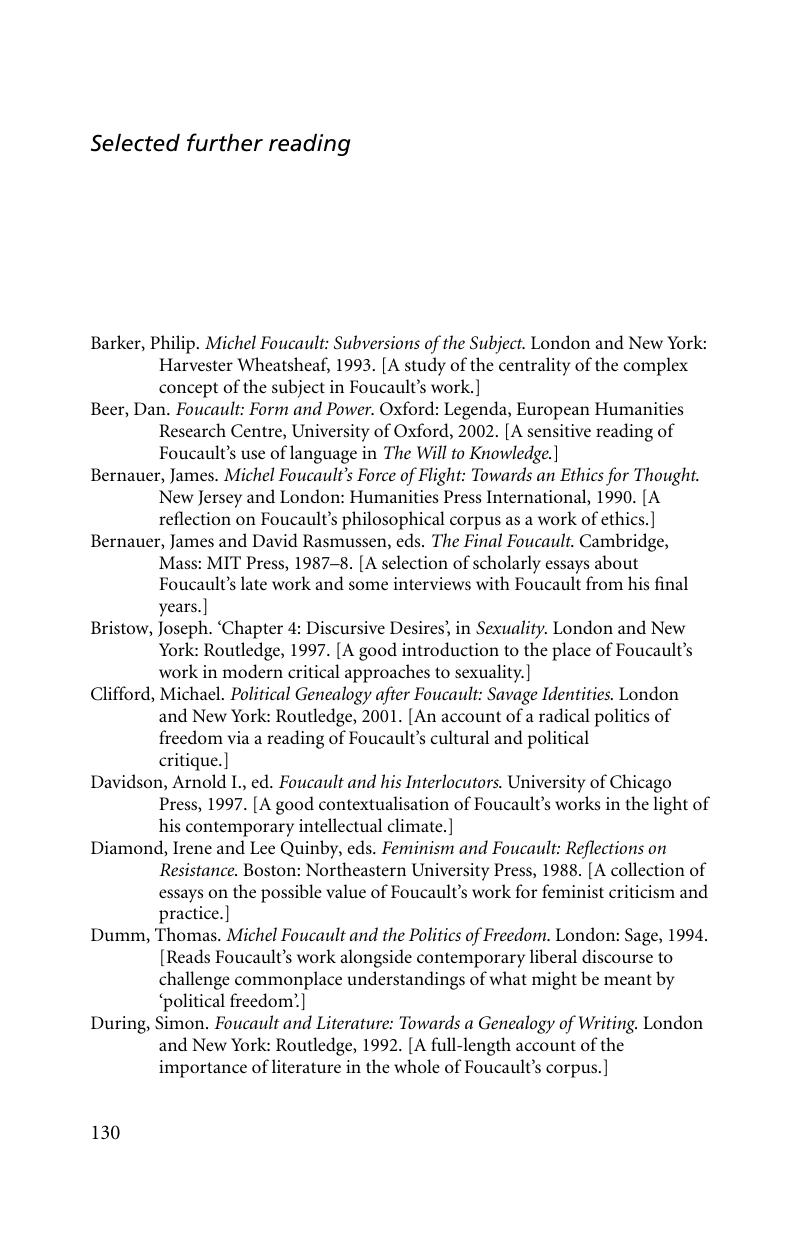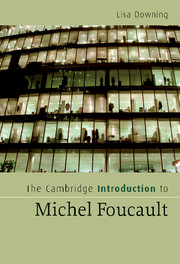Book contents
- Frontmatter
- Contents
- Preface
- List of abbreviations
- 1 Life, texts, contexts
- 2 Works: madness and medicine
- 3 Works: the death of man
- 4 Works: authors and texts
- 5 Works: crime and punishment
- 6 Works: The History of Sexuality
- 7 Critical receptions
- Afterword
- Notes
- Selected further reading
- Index
- The Cambridge Introductions to …
- References
Selected further reading
Published online by Cambridge University Press: 05 September 2012
- Frontmatter
- Contents
- Preface
- List of abbreviations
- 1 Life, texts, contexts
- 2 Works: madness and medicine
- 3 Works: the death of man
- 4 Works: authors and texts
- 5 Works: crime and punishment
- 6 Works: The History of Sexuality
- 7 Critical receptions
- Afterword
- Notes
- Selected further reading
- Index
- The Cambridge Introductions to …
- References
Summary

- Type
- Chapter
- Information
- The Cambridge Introduction to Michel Foucault , pp. 130 - 133Publisher: Cambridge University PressPrint publication year: 2008

